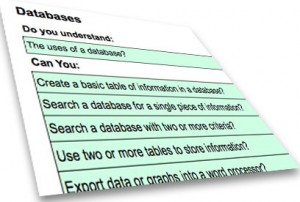I know that the iPhone has been out since last November, but I only got one at the beginning of this month. In that short time I can honestly say this little device has changed the way I work. Not only does it give me access to my emails with a reasonable data connection, but it gives me the most seductive interface I’ve yet used. Two staff at Cleveratom now use the iPhone, and another is seriously considering it.
A lot has already been written about most of this stuff, and I’ll probably not say anything new. The Edge network is slow compared to 3G, and a 3G iPhone is about to emerge from Apple, if you believe all the rumours. Hence my 1 month old gadget will be out of date in no time at all, such is the way with technology. However, before the iPhone I didn’t even have an Edge connection, I refused to pay the extortionate costs for accessing the internet through my old phone, and managing email on the go was a joke. The iPhone has at least given me a connection I can afford and some excellent tools to manage the things I need to manage. So why complain about any of that?
There are some areas where I think there could be improvements, and again, lots of this has already been said. However, it’s worth repeating from a user’s perspective that whilst the iPhone is a massive improvement over my old Sony Ericsson, and a massive improvement over the call plan I was on, there are some simple wins which I think Apple could make with this soon to be outdated gadget.
Let’s make a list:
- the ability to select and mark as read a whole lot of emails in one go, instead of managing them one at a time.
- the ability to send a contact to another person
- have a link through to contacts on the home screen instead of within the ‘phone’ app
- Be able to set a default page in safari
- better spam filtering (well, to be fair, ANY spam filtering)
- ability to remove a single call record from the calls list
- ability to forward an SMS to other people, or at least convert the content of an SMS to an email and forward that
Then there are the simple things I used to enjoy, such as the ability to write an SMS from my mac book pro and send it using the phone. I have been using the excellent ‘BluePhoneElite‘ for this purpose up until now, but the iPhone doesn’t play well with that, yet.
Basically, the more integrated the phone is with my laptop, the better it becomes for me. There is a suggestion that the phone’s data connection could be accessed by a laptop and then we’d have permanent internet access from any machine. However, I think that is only going to undermine the phone’s abilities, and perhaps we should avoid doing that.
Matt came up with a suggestion too -and that is for the calendar to link to the ‘favourites’ list in the phone functions so that if there is a contact listed in an event that the phone number for the contact gets put into the favourites list for three days, the middle of which would be the day of the event. This is actually a cool suggestion, I think. The number of times you need to speak to a person before and after an event would merit such a piece of functionality, I think.
And then there is the idea of the developer community now able to make apps for the phone. I think this is simply awesome and we will almost certainly be swimming in such things before too long. However, with that power comes the responsibility (to paraphrase someone else) to ensure the apps are good quality and needed, not just trite and uninteresting to all but a few people.
One of the very simple things I have found when using the phone is the ability to add web pages to the ‘Home Screen’ of the phone – a little like adding a bookmark but making it very obvious. The thing here is that the phone will take a snapshot of the web page and convert it into an icon for the phone, unless the website itself has already declared an iPhone icon in the root folder… a little like a favicon works. Such icons need to be made 57px square and labelled correctly for them to work, but when done properly they are superb ways to get to your favourite sites very quickly. Given that teh iPhone can have three sets of screens as the home screen (just flick across the screen to move between them), this makes a lot of sense.
In conclusion, this is a superb tool for lots of reasons, but it certainly has room for improvement. I wouldn’t complain about al the missing features though, as I didn’t have them before (mostly) and I can only list them because I see potential, not because I feel cheated. there are plenty of folk who think of the iPhone as a gimmick, and some who feel it is not yet worthy of buying as they can do more with other phones (Nokia N95, perhaps), but I would say that they couldn’t do them in as sexy a way as they could with the iPhone. The thing is way too nice to use, and far exceeds any other touch screen interface I have used on any other phone. I am sure the comptetition will play catch up, and that can only be good for the consumer, but until then I’m delighted with the phone, with the features and with the thought that it can get even better still.


